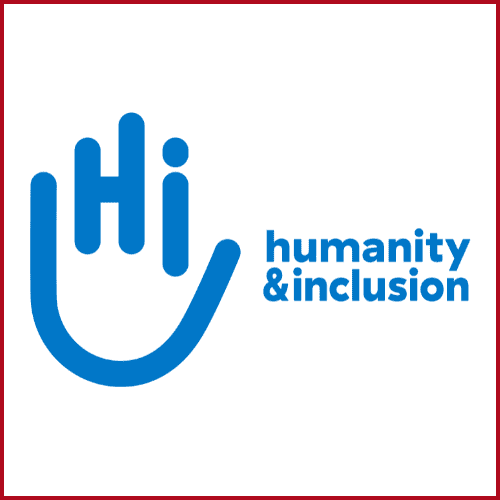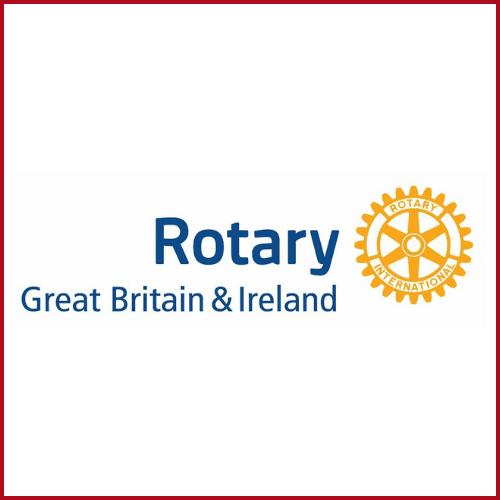
The Anita Mendiratta Foundation is a registered charitable incorporated organisation. UK Charity number: 1185358
Across our shared world the future of children is shaped by their ability to receive safe, secure, steady, and lovingly supported education.
For children at risk forced out of school due to circumstances beyond their control – poverty, conflict, or other types of crisis – restoring schooling, especially at early childhood level, is critical.
Why? Because when a child is able to return to school, not only is hope and possibility unlocked in their life, the community ecosystem operationally, financially, and emotionally is reactivated, keeping families and communities safe, strong and hopeful.
The Anita Mendiratta Foundation works in tourism-dependent countries to rebuild communities after crises, focusing on restoring early childhood education. Through partnerships with local organisations AMF is able to reactivate community ecosystems through schooling, making a world of difference for families and communities across the world.
Click here to read our latest Annual Report.
CURRENT PLACES OF IMPACT
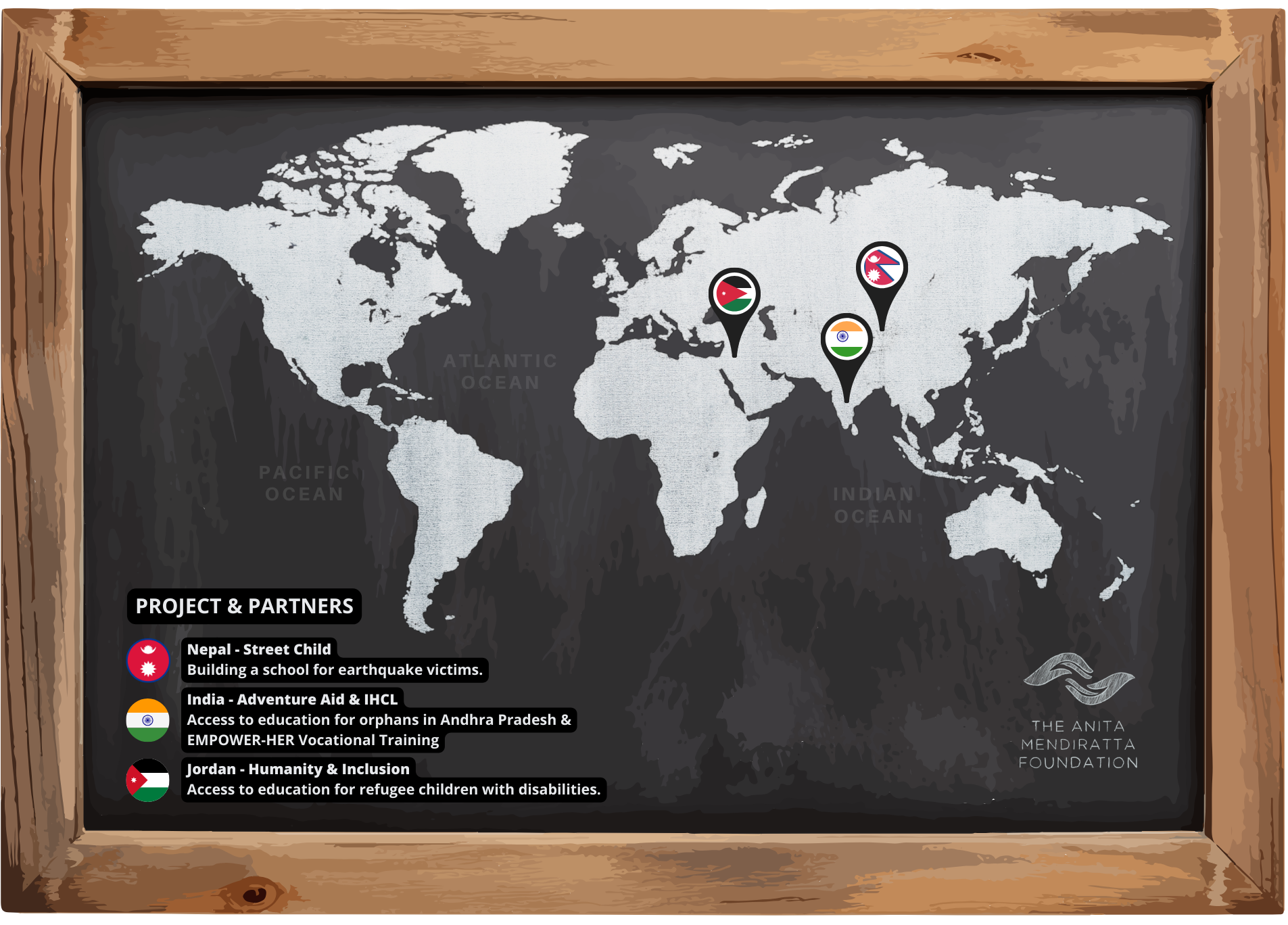
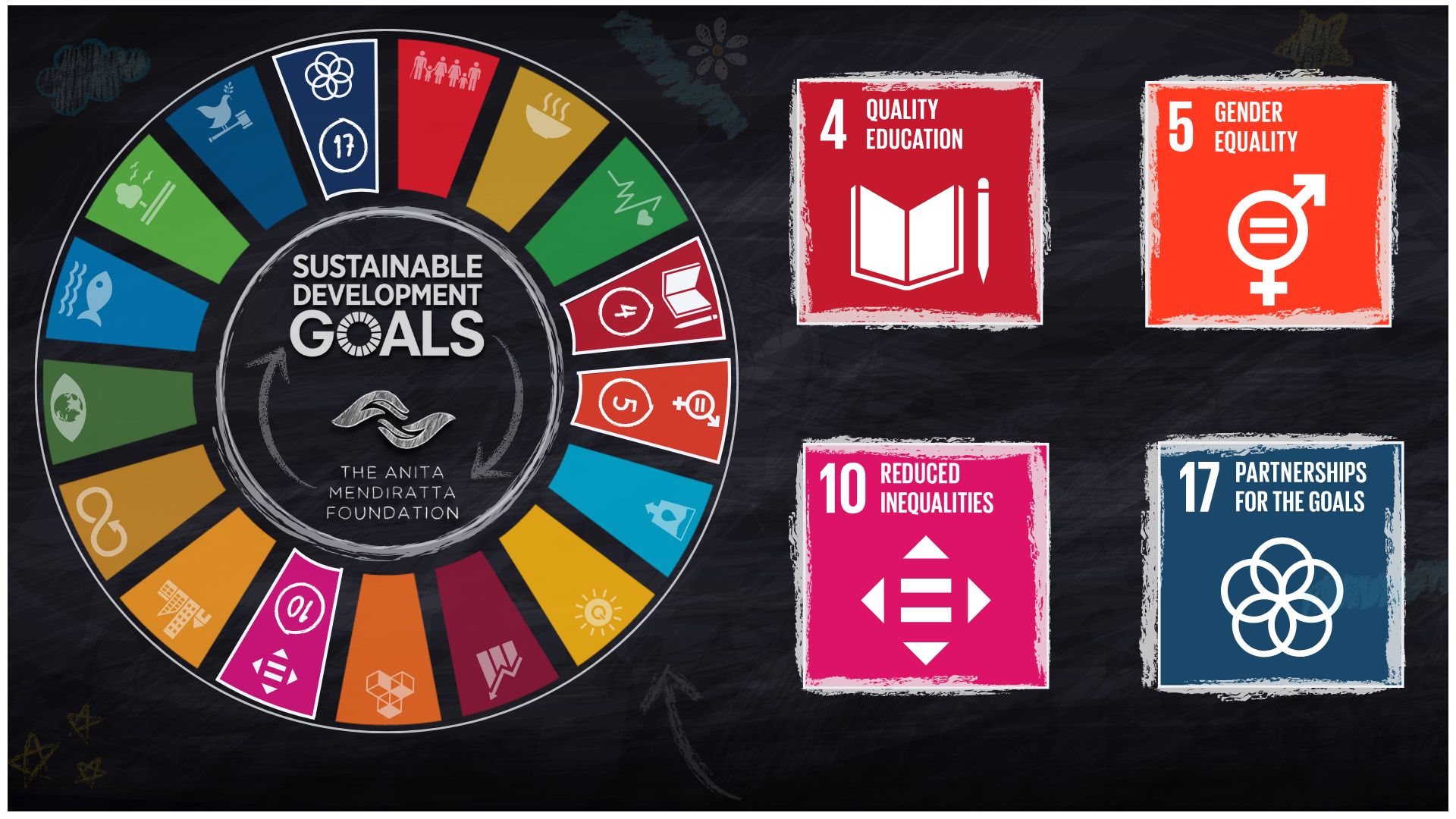
The Sustainable Development Goals (SDGs) are a global initiative to create a more equitable, just, and sustainable world. Introduced in 2015 by the United Nations, the 2030 Agenda for Sustainable Development outlines 17 goals to achieve this vision. AMF focuses on advancing four key SDGs: Quality Education (SDG 4), Gender Equality (SDG 5), Reduced Inequalities (SDG 10), and Partnerships for the Goals (SDG 17).
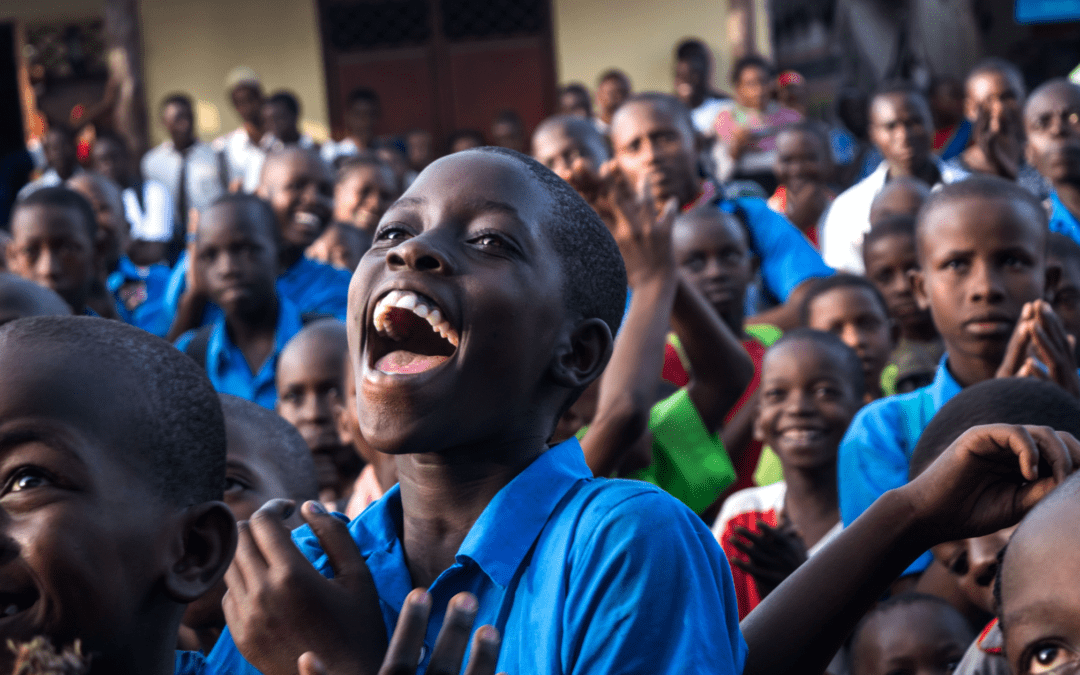
Interview with Geoff Blurton – On Partnerships, Learning from Mistakes, and Changing the World Through Education
Partnerships are a cornerstone of The Anita Mendiratta Foundation, and essential to the way we operate. Every project funded through the generous support of our donors is successful because of our on-the-ground partners who do everything from site visits to project implementation to project reporting.
Geoff Blurton, our Foundation Advisor and Rotary Relationship Manager, has been integral to our learnings and the success of our partnerships to date. Geoff’s background in education and extensive work and experience on projects in developing countries across the globe is invaluable to AMF’s development of impactful local partnerships that truly unlock hope, stability, and enduring productivity in communities.
Through his leadership positions with Rotary Great Britain and Ireland, Rotary International, and the Salvation Army, Geoff has a lifetime of practical experience in bringing together organisations that otherwise would be working alongside rather than together.
The education of children has always been at the heart of Geoff’s involvement in international development, and his impressive skillset of using partnerships to amplify opportunities for children, their families, and their communities has been an enormous asset to AMF.
We had the privilege to sit down and interview Geoff to find out more about why he got involved with AMF and how his experience in education and partnerships transfers to his work with the Foundation.
“If you think education is expensive, think of the cost of no education to the community.”
– Geoff Blurton
Rotary is an internationally recognized and respected entity. Why would they be willing to partner with a new nonprofit? What was it about AMF in particular?
Well, in simple terms, it was the enthusiasm.
It was the vision that was given to us. I like the word vision. It’s an important thing to see one’s vision of something that isn’t there already.
To see the possibilities from just thinking about it and seeing the need in the first place. In addition to the vision, it was the wide knowledge of her (Anita Mendiratta) travels around the world, of the situations that the foundation can, and is, and will help in the future.
What was it about working in tourism economies that appealed to you?
Having been a tourist myself and having said that, I’ve lived in some of these places, it’s pretty obvious how well tourism can contribute. I’ve seen so many good projects.
Just going for a holiday, in some places, there is obvious poverty, there is an obvious need. And the fact that tourism is bringing an understanding to people in the more affluent parts of the world of what those needs are.
Just talking to the people in the hotel, talking to the people who serve you at the tables, talking to people who clean your rooms – talking to the people on the tourist track is an eye-opener.
It’s something that is an important part of their lives and therefore an important part not just of the parents, but of the children, too
It always pleases me when tourists do want to go a little bit off the beaten track when they’re not just going on the official tours, but go and see life as it really is. I think tourism brings tourists a real sense of a world that is perhaps otherwise unknown to them.
I think tourism has an important part to play, not just in bringing money into the local economy, but in creating awareness in the developed world of what exists elsewhere.
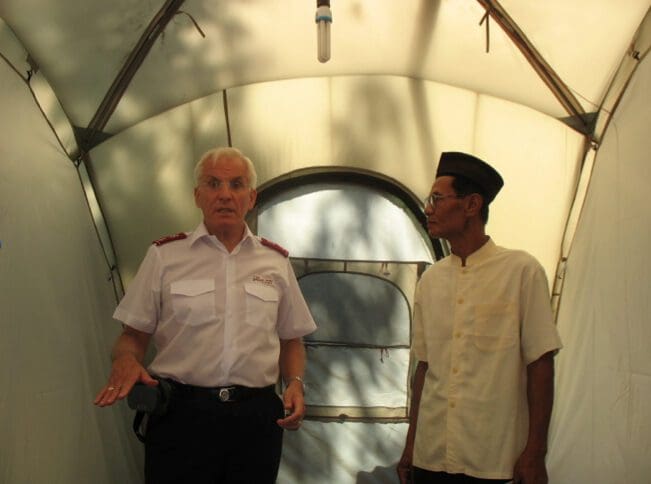
What do you feel the experience you have from Rotary and Salvation Army can offer AMF to make an impact that is safe, measurable, and sustainable?
I’ve had lots of experience over the years in international development and through both organizations and interestingly, bringing both organizations together on a number of projects which was a useful thing.
For instance, in Zambia, I helped to create a new community center in quite a remote place, which is now owned and operated by the Salvation Army. But it was largely through Rotary that we raised the money to produce that. It was a very interesting partnership, and I venture to say that that community center would not now exist were it not for that partnership.
Neither of those organizations, for different reasons, was capable of implementing that project straight away. So you have to bring your partnerships together. Rotary and the Salvation Army, working in approximately 200 countries, both have approximately 1.4 million members of one sort or another. That’s a lot of people who can be called upon. Having contacts on the ground is extremely important.
There is also my own experience of preparing project proposals, vetting, monitoring them, and afterward going in to do an evaluation so that we can all see where we are, and where we are headed. People often ask me what do you mean by an evaluation? Well, it really is very simple. Is the value for money that you spend on Project A or B, is that really meeting the objectives you set out to do?
I think in international development and emergency response, we tend to quite rightly sing our praises as to everything that is absolutely wonderful. As if it has gone down without any hitches whatsoever. But sometimes we can learn a lot from the projects that don’t go as well as we would like them to.
I was involved in a project after the big tsunami in 2004. Four or five years later, we had a big conference based in India with all of us who had been involved through the Salvation Army projects. We came away with quite a lot of lessons, if this ever happens again, we won’t do these particular things again. Or we will do this, but we’ll do it better, and so on. Not being afraid to put your hand up and say sorry.
I worked at the University of the Witwatersrand in Johannesburg, South Africa, and I left after a number of years. A nice lady from human resources, she said, “You know, you’re different.” So I said, I know that I’m unique, just joking. She said, “No, you’re different. You’re the only person around here that was prepared to hold his hands up and say, sorry, I made a mistake, I was wrong.
I’ve learned more in life through my mistakes than I have through the things I’ve done well.
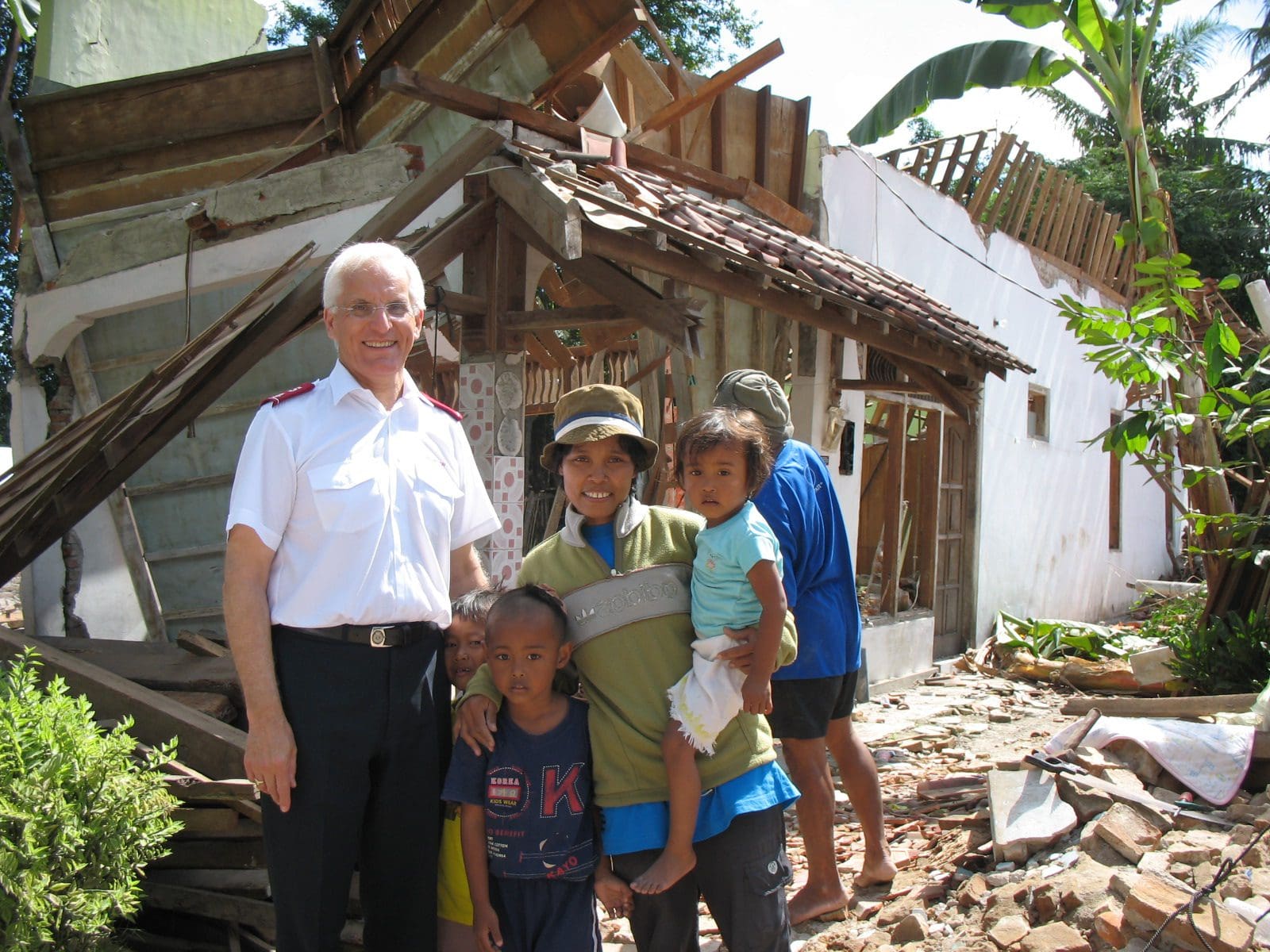
Why are partnerships so important?
Well, I’ve really studied it all. I think you can achieve so much more. Just one little example of that project I mentioned after the tsunami in Indonesia. We were building houses, we built 750 new houses and I ran short of money to get the water into the houses done, which was important to give them a nice house. You turned the tap and there was no water there. There was no more money in my project. So I went cap in hand around to all the other organizations that were working with me in Indonesia and found out that the Red Cross had some spare money in the bank and they paid for that. So that was great.
It would have been incomplete without being able to call on somebody else. That’s the value of a project and the sharing of ideas. Although my organization was small compared to some of the big boys who were working in Indonesia, we actually got on with our house building quicker than some of them did.
The leaders of all the organizations working in that area of Indonesia, a town called Malabo, met every week over coffee on a Monday morning and shared ideas. I did ask one organisation once, Why are you so slow to build your houses? They responded that it was the headquarters back in Europe holding them up. They said to me, How do you do it?
I said, well, I work on the basis that it’s very often easier and more satisfactory to ask for forgiveness after the event than it is to ask for permission before the event. So I’m very much guilty on occasions of going and finding ways of making things happen and then saying when taken to task at the end, Oh, I’m sorry, I promise I won’t do it again.
And then next year you go do it again.
Unlocking barriers for children to access education is so important for supporting a community as a whole. Can you share a time when you’ve seen this in person?
As a former teacher on many occasions. Going back to my days in Kenya teaching visually impaired children, we had 120 of them in the school. We very often discovered, and I believe it still happens today, that blind children were hidden away in the community. Because of the suspicions that arose through their belief in witchcraft, that blind children could bring evil spirits to you.
So they would hide the children away and we would find them and persuade people to let us take them to our boarding school. The number of stories of taking them home for school holidays and so on, and seeing the children accepted more in the community and seeing that community enriched by the fact that they were able to accept that a child who couldn’t see or a child who was physically disabled and couldn’t walk properly or couldn’t hear, that they could play a part in that in that community. And they did. To go back and see in a village, one of the children who I taught was actually translating for me in the local language so that the people in the village, the chief in the village and the families, etc., could all understand. They were amazed that this little girl who was probably eight or nine years of age at the time, was sitting there and able to communicate with the family and then with me.
Making the children feel part of the community, and therefore making the community realise that everybody in that community is a person of value. I could just repeat that story time and time again.
To see children who we taught in that environment go on and become educated, qualified workers in their own right. I think of the lady I know in Kenya who subsequent to going on from us, we were primary school to secondary school and then to university is in a position still to this very day to put resources back into her own family situation. Possibly the only person in her village who is working to the level that she’s working.
You’ve got to influence children when they are young. Their education is so vital, that and creating an awareness of the world in which we live. If we’re to do away with discrimination in its many forms in the world, what better place to start than with children? If you can get the ideas into their heads at a young age, hopefully later they’ll be able to resist the more old-fashioned ideas of their elders.
Back in Indonesia, we took a special interest in the fears of children being near the seaside. I’ve got a lovely photograph somewhere of a tree that overhangs right on the seafront. I managed to capture a moment where children were actually sitting on a branch of that tree. When we first went there, they wouldn’t go anywhere near the ocean. The ocean was the enemy. The ocean destroyed life as they saw it. But to get them back again was wonderful.
My three priorities in life have always been education, education and education. Somebody else said that, but I said it before them.

The Anita Mendiratta Foundation is committed to working with trusted, verified partners on the ground to maximise and create a lasting impact on the lives of young children, their families and their communities, together.
Thank you Geoff for your time, and for always being willing to share advice, wisdom, and your experiences with the AMF team.
We are grateful for the trust of Rotary International, and their support of our vision to make sure no child ever feels alone after a crisis.
#AMFCallToAction
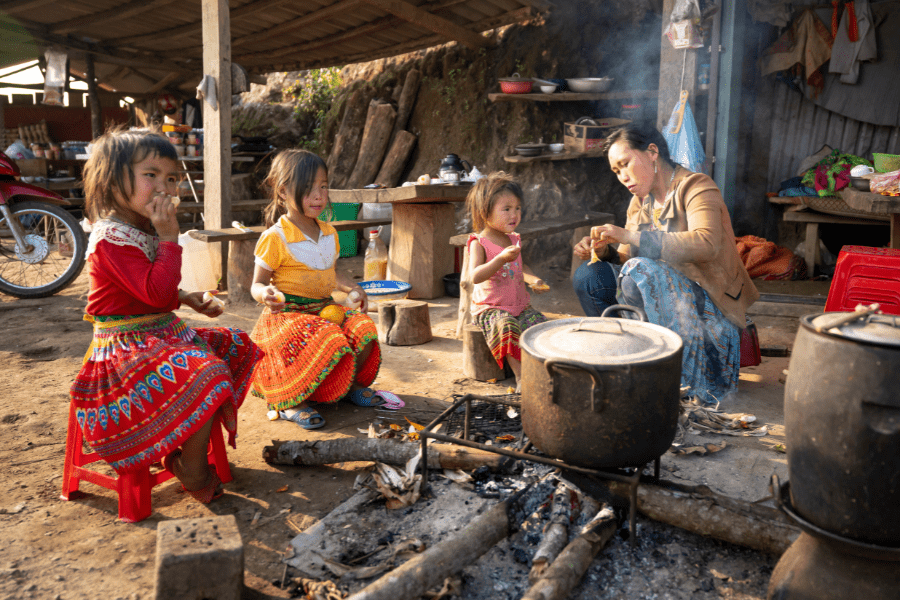
Working with Purpose: Doing What Matters to YOU
Tourism is about so much more than the wonderful memories travel creates. Tourism builds livelihoods, it puts food on families’ tables, drives local economies and allows children to go to school.
But when a crisis hits, all this stops. Travellers stay away and places travelled are made to suffer.
That’s why at the Anita Mendiratta Foundation (AMF), we help tourism-dependent communities hit by crisis rebuild childhood education, allowing the adults to focus on re-establishing economic activity, ultimately rebuilding hope for the whole community.
At AMF, we are all passionate about tourism and its transformative impact on both the travellers and the communities travelled to, including Jessica Zijlistra, Co-Lead of Global Projects.
We sat down with Jessica to talk about her love for travel, how her experiences of motherhood shapes her work and the key takeaways from working in the charity sector.
WHERE DOES YOUR PASSION AND INTEREST FOR TOURISM COME FROM?
“I grew up in a very small town and no one in my family had a passport or had ever travelled, so it was quite foreign to me. But I loved National Geographic magazines and watching travel shows and I’d dream about visiting all of these interesting, far away places and people I was immersed in.
Once I had the opportunity to travel and was able to see people in such different circumstances to myself, it was really eye-opening. It makes you look at your own life and feel so incredibly lucky and grateful for everything that you have. I was also clearly able to see the positive impact that tourism can have on the communities that are travelled to. For example, when taking local tours you know that the money raised is going straight back into the local economy and its structures, from children’s community centres to adult education.
Having the opportunity to work for a charity like AMF, that supports communities dependent on tourism, is really fulfilling.”
PART OF AMF’S MISSION IS TO SUPPORT PARENTS AND GUARDIANS, HAS YOUR OWN EXPERIENCE WITH MOTHERHOOD SHAPED YOUR WORK WITH AMF?
“I would say definitely. I think especially having a child who has complex needs, I am very aware of the different facets of education and how important not just the academics are, but the emotional support and the support for parents. I live in a world where I can tap into benefits and programmes from the government, pay for specialty support privately, and even then it is still difficult. Thinking of the kids and parents that don’t have that support or capability, whilst trying to juggle work and their children’s safety, can be painful. But it also provides a real drive for me. I know that AMF and the work we do can help make that little bit of difference for not only the kids, but for their entire support networks, their entire communities.”
SINCE BEGINNING YOUR WORK WITH AMF, WHAT HAVE BEEN SOME OF YOUR KEY LEARNINGS?
“When AMF started it was a simple idea that we were all excited about and one we felt could positively impact those in need. Although that excitement has always stayed strong, I soon learnt just how much effort goes into creating a successful, UK-registered charity. All that work is very necessary as it protects the charity and protects the children and families on the other side, but it was a big realisation for me.
I would say another big takeaway has been witnessing how far any amount of support can go in changing people’s lives. AMF’s first project was with Apt Social Service Society, an orphanage based in Andhra Pradesh, India, where we had the opportunity to provide the essential resources the children needed to access education. The children were able to go to school that year with shiny new uniforms, books, shoes and even hair ribbons. On top of the difference it made to the children, the orphanage and the caretakers, the only people these children have in the whole world, didn’t have the stress of paying for their tuition. It opened my eyes on how much of a positive impact you can have, even with a small amount of support.”

Jessica Zijlstra, Co-Lead on Global Projects.
Join us at the Anita Mendiratta Foundation in our mission to ensure all children have equal access to schooling. Find out more about what we do today.
#AMFCallToAction
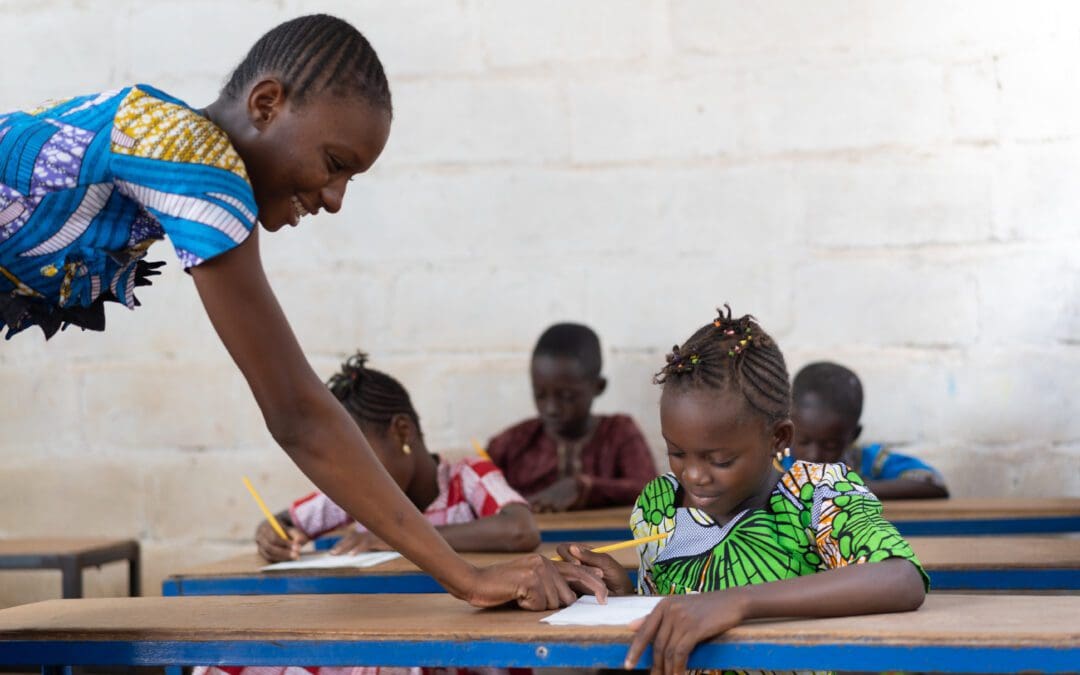
Healing Trauma and Rebuilding Hope Through Education
Every child deserves a magical childhood, one full of laughter, play and learning. Yet for many little ones, their reality can be far from that.
Children who grow up surrounded by crises have to navigate a world very different to those who are fortunate enough to have had a secure, loving childhood. In many situations it is actually access to education that provides children with a safe space to grow, develop and work through crisis-caused trauma.
We recently spoke to Dr. Cheryl James-Ward, an established teacher, exceptionally qualified professor, inspiring educational leader and a greatly valued Trustee at the Anita Mendiratta Foundation, on the topic of equal access, education and its role in supporting children through crisis and trauma.
YOU HAVE SPOKEN PASSIONATELY ABOUT EQUITY AND ACCESS WHEN IT COMES TO EDUCATION, COULD YOU TALK A LITTLE MORE ON THIS?
“No one chooses the circumstances they are born into. Children can’t pick the country they live in or decide on the state of education in their local area. They also can’t select their caregivers. Some parents and guardians are having to work all day just to put food on the table and naturally come home carrying trauma that will pass on to those around them.
Because of this, so many children lose out on opportunities, are facing painful trauma and do not have equitable access to social, financial, emotional and educational capital.”
SO, WHY IS ACCESS TO EDUCATION SO IMPORTANT FOR CHILDREN WHO ARE EXPERIENCING OR HAVE EXPERIENCED TRAUMA?
“Childhood is such a formative time for all of us and sets the stage for our adult lives. Kids in their first six months to a year learn how to deal with the world. They learn if they have to fight, if they live in a calm place, whether love flows, and then they learn how to address it – all in just the first 12 months. For many children that experience of trauma and crisis, whether in the first year or after, is not dealt with and the right supports aren’t put in place.
As educators, we have the responsibility to help identify these issues as soon as possible and offer all the support we can. If we address the problems early, we might be able to prevent the trauma from continuing into adulthood.”
WHAT DOES SUPPORT LOOK LIKE FOR CHILDREN WHO ARE RECOVERING FROM TRAUMA AND CRISIS?
“Where possible it’s important to have counsellors on site to work with the kids, their guardians and the school – when all three work together, progress can be made. We owe it to the child and to society to get this right as soon as we can. That’s one of the first steps. But I also believe in love, we got to love kids and if we love them, they’ll try their best.
I remember I had one student who really tested me and just wore me out. I almost wanted to give up on her, but then I came to my senses and realised it’s my responsibility to support her. I told her and her mother, ‘I’m going to be your mentor and we are going to get you through high school’. She pushed me. She fought her mum and there were ups and downs. We had daily and then weekly check-ins where it was so important to tell her how much she had to offer the world and how much I believed in her. She ended up graduating with honours and went on to a UC school where she will flourish.
It is our duty to help every child, help them find their way and build them up – that is what real support looks like.”

Dr. Cheryl James-Ward, Trustee.
Join us at the Anita Mendiratta Foundation in our mission to ensure all children have equal access to schooling and the transformative support of educators like Dr. Cheryl James-Ward. Find out more about what we do today.
#AMFCallToAction
Our partners


